While most people struggle to keep pace with one job, these individuals straddle two or more professions with seeming ease. Anju Maskeri finds out how they juggle their hyphenated lives
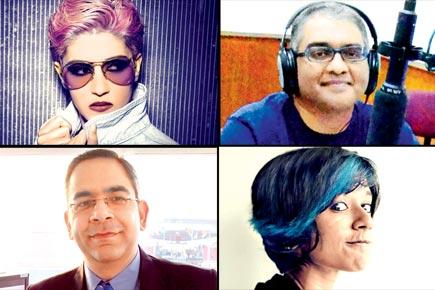
Not content with letting their hobbies take a backseat because of their profession, we meet individuals who have gone the extra mile and now straddle more than one job with much elan. All this, for the pleasure of self expression:
ADVERTISEMENT
Ayesha Billimoria (Athlete/ Model)
Ayesha Billimoria might be faster than a speeding bullet when she's on the running track, but when in front of the camera, she looks nothing less than a glamourous diva. Her career as an athlete and model began simultaneously when she was about 16. "My first ad was for Shaadi.com at the time I was studying at St Xavier's college, and made to look like 35-year-old woman," laughs the 27-year-old national level athlete.
Today, Billimoria not only juggles these two professions, but is also a sports trainer where she instructs kids and older people on body alignment and indoor strength training. She begins her own training at 5 am, after which she imparts lessons in body movement to a group of people aged 40-50 years at Priyadarshini Park, Napean Sea Road.
In the evening she teaches the kids. She has also started her own athletic club called the One Track Club where she hopes to nurture 'thinking athletes'. "Ninety per cent of the training is focussed on the mental level and ten per cent is physical. Athletes needs to understand the dynamics of their own mind and body and not blindly follow coaches," she says. Billimoria, who trained in Australia for three years in athletics, feels coaches abroad encourage you to think out of the box.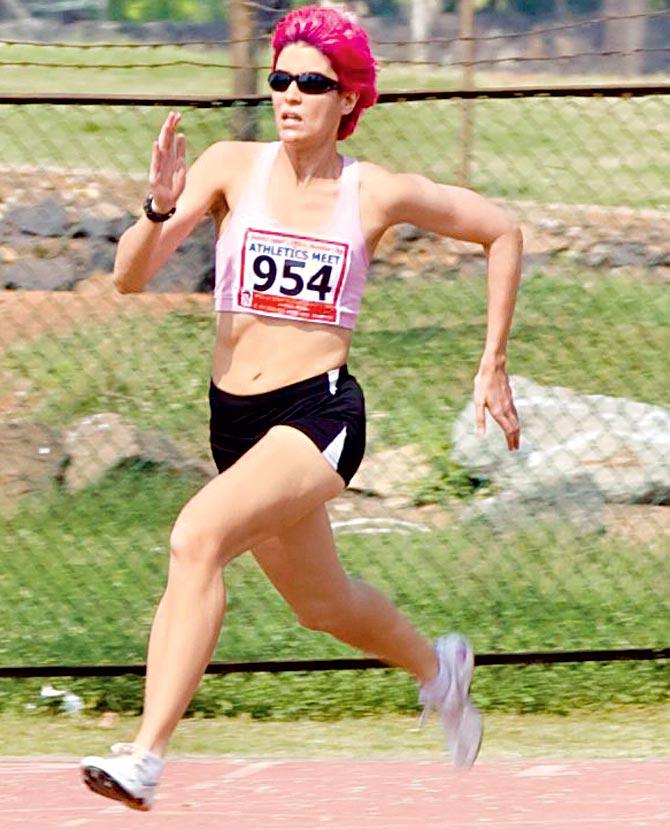
Twenty-four hours is more than enough for her to juggle three professions. "People who say they don't have the time, are simply fooling the world," she shrugs. Her modelling career seems to be flourishing, with several sports brands vying to get her on board.
"Although modelling is full of dirt, it has great money," says Billimoria adding that she will always remain an athlete at heart. Although due to an injury, her Olympic dream is yet to materialise, she hasn't lost hope. "I will run as long as I can," she ends with conviction.
Sofia Ashraf (Copywriter/Rapper)
Sofia Ashraf is a copywriter at Oglivy and Mather by late afternoon and a rapper by night. "By morning I'm sleepy," jokes Ashraf, who loves music and comes from a family of talented musicians. "But I was never good at it. My fingers would waddle across the piano like a duck in high heels," she says. Her rapper career happened by fluke. "Rapping, to me, is all about speaking my mind.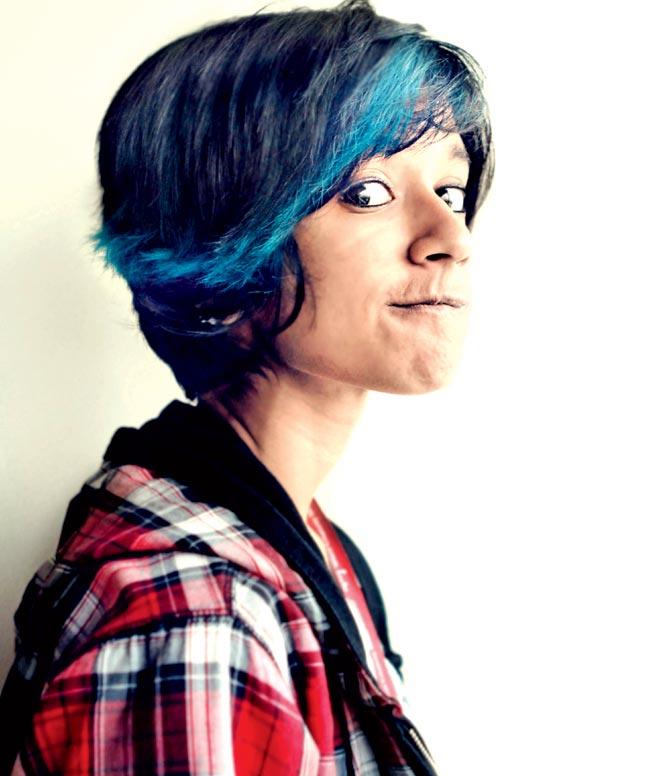
And, that's what got me noticed," she says. After rapping at college events, Ashraf got her first break when she got a call from journalist and activist Nityanand Jayaraman asking her to perform at Justice Rocks — a 'protest' concert. "For the first time I was performing in front an informed crowd that was open to listening to what I actually had to say.
Through Justice Rocks, my rap found a voice and I found an identity. That identity was a rapper — a female rapper in a burkha who raps about her Islamic identity and social taboos — the audience loved it. Yes, I agree it was gimmicky, but I was just being myself," she says with disarming honesty. The turning point in her rapping career came when she got a call from AR Rahman to rap for his songs. Ashraf has rapped for the song Jiya Re from Jab Tak Hai Jaan (2012) as well for Sonapareeyan from Maryan (2013).
Although Ashraf is updated on current trends in rapping, she ensures to not blindly ape international artistes. "I've always tried to create a style of my own. Art is all about baring your mind. Rap is a medium that relies heavily on content. My opinions are my only tools. The day I stop having one is the day my rhymes will stop flowing," she says.
Today, Ashraf is able to juggle both professions with ease and this, she feels, is because she has been blessed with a rare breed of understanding bosses. "They know how passionate I am about my music and respect me for it. Just as long as I deliver at work, they let me frolic about on stage," she says.
Santosh Sirur (Banker/RJ)
Whether it's working in a foreign bank during the day or sound-tracking music during his night show on radio, Santosh Sirur is always on the hot seat. His stint with radio has been longer than his banking career — 20 years as a radio jockey with All India Radio and 15 years into banking. Reminiscing his first audition, Sirur says, "I had no training whatsoever.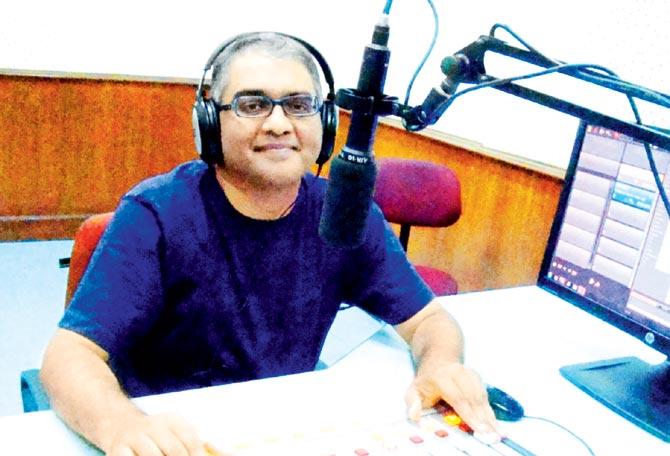
While the other candidates waxed eloquent about their prior experience in radio jockeying, the only 'achievement' I could talk about was the fancy show I hosted in my colony," he laughs. Sirur handles the English music show at 10 pm on 107.1 FM radio and has been hosting a quiz show for kids, called Knowledge Radio.
Sirur feels balancing both jobs is relatively easy as the timings do not clash. "But family support and organisation support is very crucial. On days when you have a weekend show, you need that much-needed nod from the family to head to the studio," he admits.
Sajad Rafeeq (Engineer/Photographer)
Sajad Rafeeq's story almost sounds like a rip off from the movie 3 Idiots where his family was staunchly against the idea of him becoming a photographer. "It took me three years to convince them to follow my passion," says Rafeeq, who is also an engineer by profession. Interestingly, he has also worked as a college lecturer in Dehradun in the past.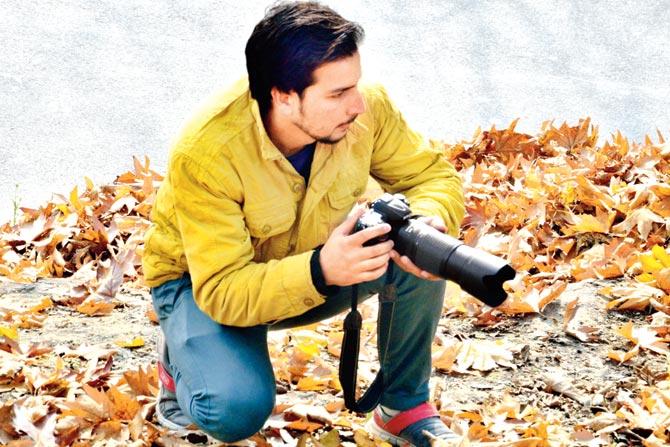
"I kept taking up small jobs because I wanted to make time for photography," he explains. Rafeeq works as a junior engineer at Baglihar dam Chanderkote Ramban, located about 150 km from his hometown Pampore, Kashmir. And while he is not surveying dams, he is busy clicking the picturesque beauty of the Valley and its beautiful people.
"I am a self-taught photographer. It gives me peace and creative satisfaction. This is what keeps me going," says the Kashmiri lad who won National Geographic's reality-based photography show – Nat Geo Covershot – this year. "I am an engineer to make a living and a photographer to keep my passion alive," he says.
Sunil Taneja (Doctor/Commentator)
While we wonder how Sunil Taneja straddles two seemingly demanding professions — being a doctor and a commentator — he is quick to clear our doubts, "It's tough, so, commentary is my primary profession. As an ayurvedic doctor, I see very limited patients now," he says. Taneja even works as an anchor and a voice-over artist.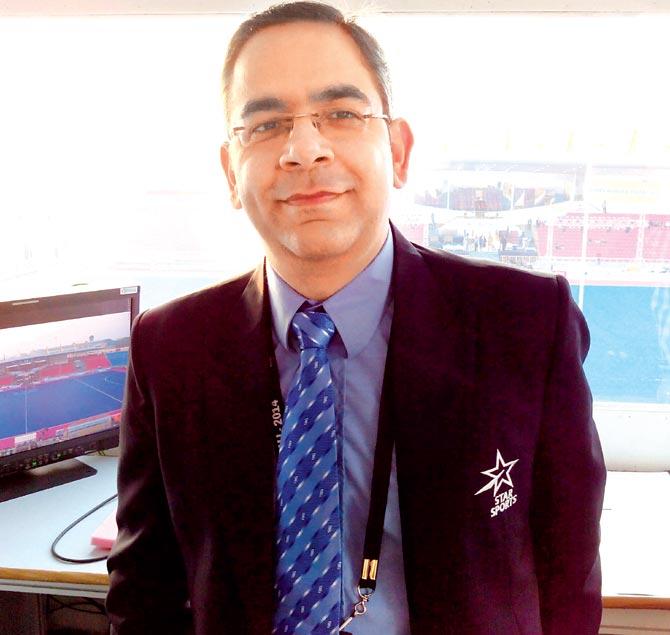
His first job was with ESPN-Star Sports as a Hindi commentator. The break came about after he participated in a reality TV show, called Harsha ki Khoj. "I reached the semi-final stage. A few weeks after the show, I got the job offer and thus began my journey in sports media," he says. Taneja, who always nurtured a passion to lend his voice to live sporting events, feels he could not have asked for a better job offer to begin with.
His resume is rather impressive. From cricket to hockey to kabbadi, he has had his fair share of commentary in most sporting events. "I have even done live commentary for the English Premier League (EPL), Champions League, FA Cup, FIFA World Cup and EURO. But for past a few years, I am only doing hockey and kabaddi," he says. Apart from his sheer love for sports, he also owes his knowledge of it to his Punjabi genes. "Being a Punjabi, I know hockey and kabaddi well. My only challenge is to make viewers understand these games better," he says.
Taneja finds it fairly easy to perform his duty as a doctor as he attends to patients at his residence. "For commentary, I have to stay away from my home for weeks and I must thank my wife, Dr Shaveta for supporting me and managing my five-year-old daughter Saanvi. I would have not have continued pursuing my passion of doing commentary, had Shaveta not supported me," he says.
To be a commentator, Taneja feels, it always works better if you have played the game, but if one hasn't, one can acquire the knowledge of it. "I believe, you must be a natural commentator first. And as a 'lead commentator', my job is to narrate the game to the viewers in a simple and interesting manner," he says, adding that he is happy with the current limelight that kabbadi has been receiving.
His only advice to youngsters who aspire to become commentators is to not be complacent. "Never ever think that you know your game well. The hunger to learn should never end. Try to communicate with them as friends. Keep your words and work simple," he concludes.
 Subscribe today by clicking the link and stay updated with the latest news!" Click here!
Subscribe today by clicking the link and stay updated with the latest news!" Click here!






